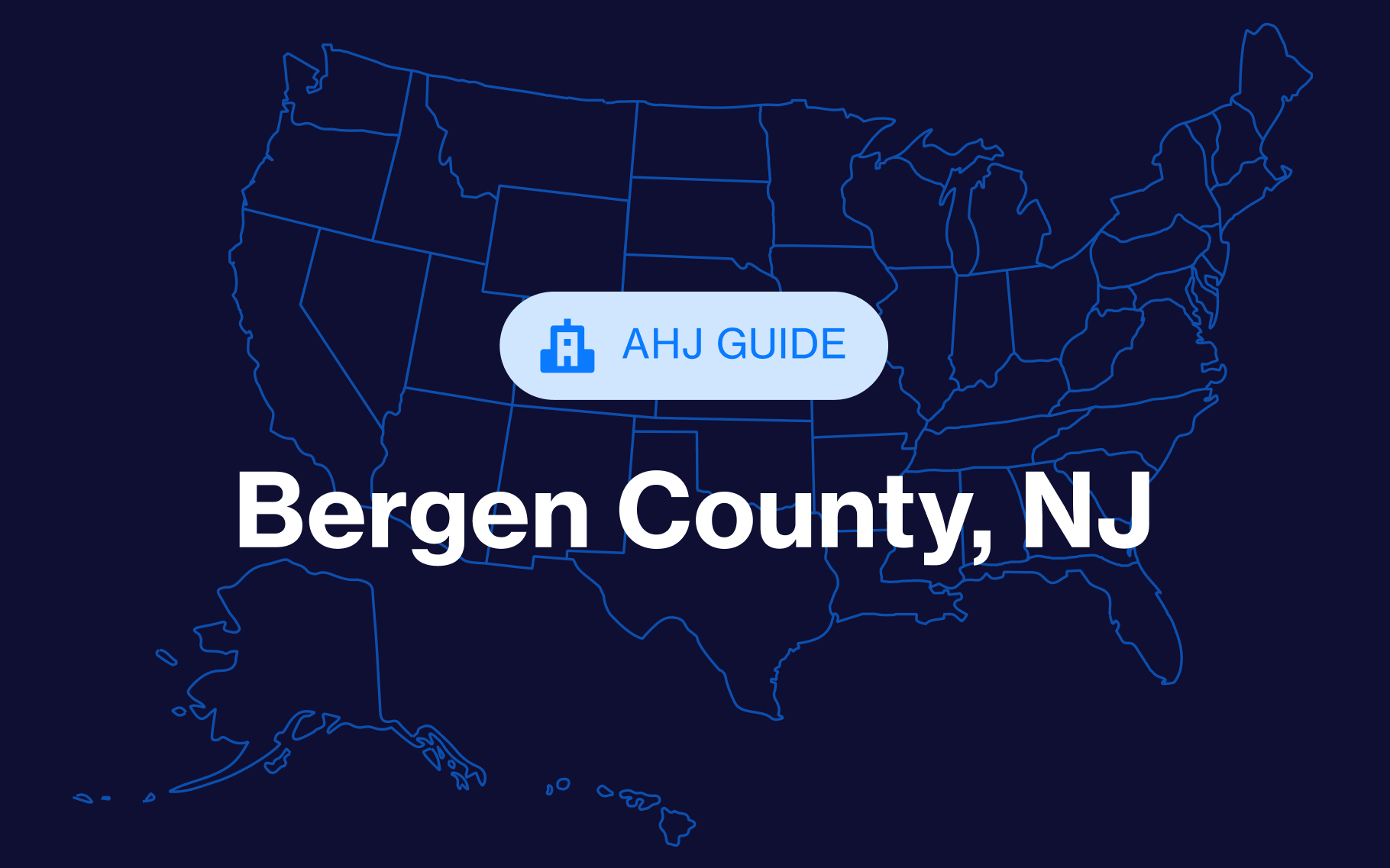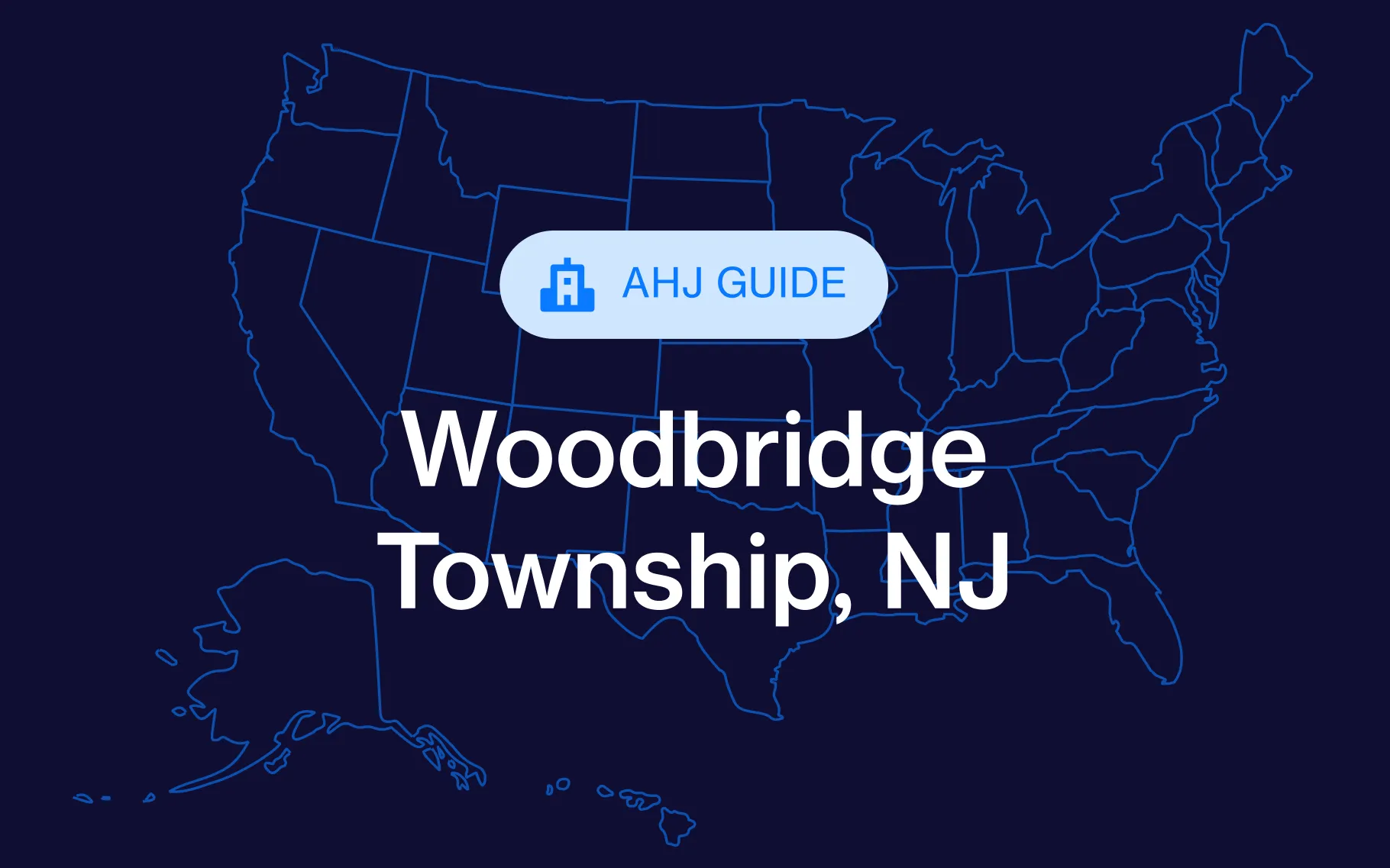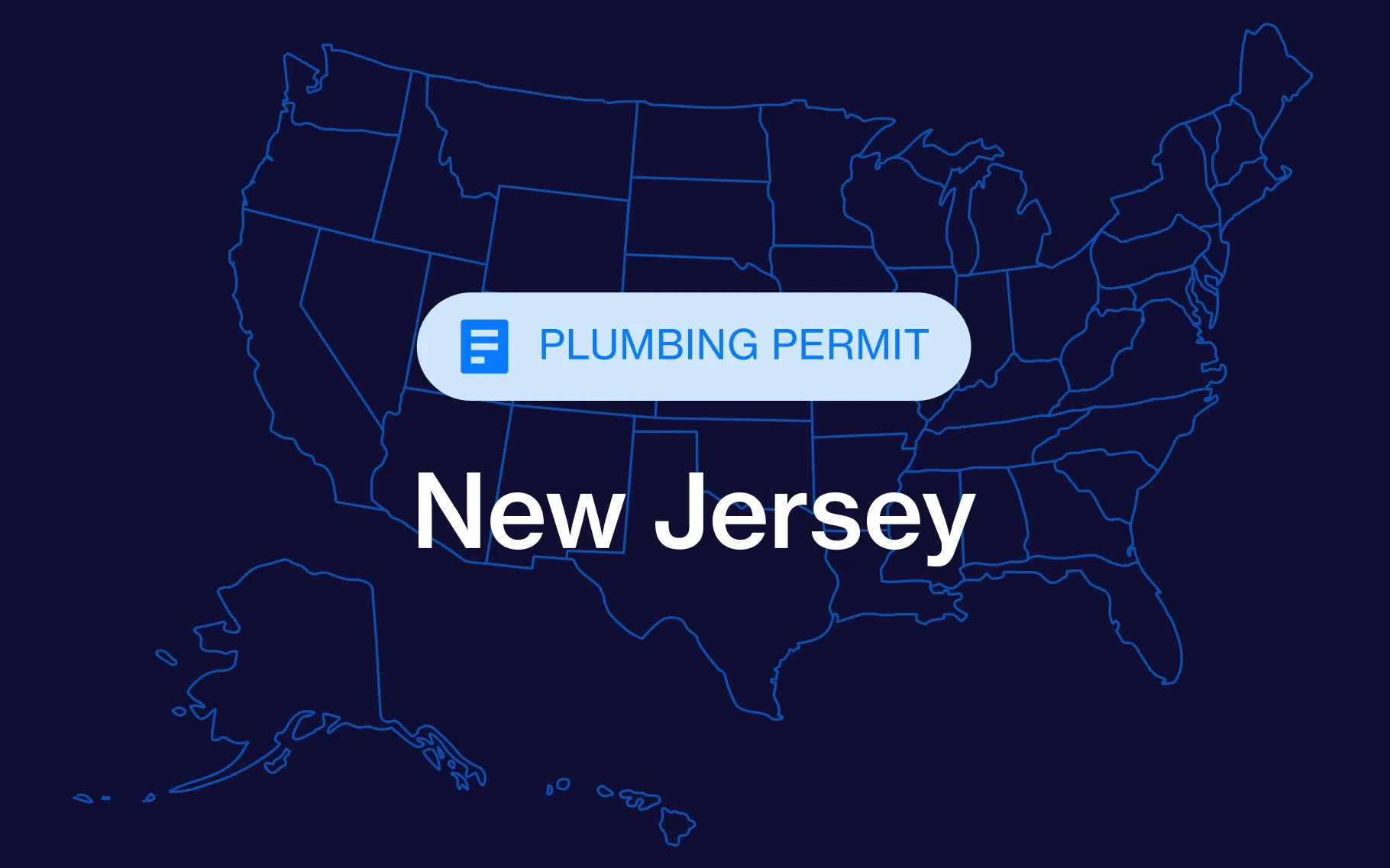From shore-town additions to warehouse build‑outs along the Turnpike, most New Jersey projects need a construction permit before work begins. Below, we’re covering what requires a permit, who issues them, statewide requirements, typical costs, NJ‑specific considerations, and a step‑by‑step process to get approved.
What requires a building permit in New Jersey?
Local ordinances vary, but under the NJ UCC you will typically need a permit for:
- New construction (residential, commercial, and accessory structures)
- Additions and structural alterations (wall removals, new openings, dormers)
- Decks, porches, balconies, and stairs/egress changes
- Basement finishing (adding bedrooms, bathrooms, or altering egress)
- Pools & spas (in‑ground and most above‑ground), retaining walls above certain heights
- MEP work: new or reconfigured electrical, plumbing, HVAC/mechanical, fire suppression/alarms
- Roofing/siding beyond ordinary repair, window/door changes that alter framing/opening sizes
- Demolition, change of use, or tenant fit‑outs
Often exempt as “ordinary maintenance” (no permit) when like‑for‑like and without structural changes:
- Painting
- Flooring
- Cabinets/countertops
- Some roofing/siding/windows of the same size/type
- Minor fixture swaps
Inspections or subcode permits can still be required in some cases — confirm locally before starting.
Who issues building permits in New Jersey?
New Jersey permits are issued locally by the municipal Construction Office (or a shared services/consolidated office) under the New Jersey Uniform Construction Code (UCC) administered by the NJ Department of Community Affairs (DCA).
- The local Construction Official coordinates plan review and inspections across subcodes (building, electrical, plumbing, fire protection, and mechanical).
- Some small municipalities use third‑party agencies approved by DCA for plan review/inspections.
- If a town lacks local enforcement, DCA may provide direct services.
New Jersey building permit requirements
Expect to submit a package that includes:
- Uniform Construction Permit application (UCC) plus subcode technical sections (Building, Electrical, Plumbing, Fire as applicable)
- Construction documents: plans/specs; sealed by a NJ‑licensed design professional when required
- Plot plan/survey showing setbacks, easements, flood zones, and proposed work
- Energy code compliance (e.g., REScheck/COMcheck or equivalent details on drawings)
- Contractor credentials: NJ HIC registration (residential), trade licenses, and insurance/worker’s comp
- Zoning sign‑off or separate zoning permit (many towns require zoning approval before UCC intake)
- Project‑specific items when triggered: truss/engineered calculations, shop drawings, special inspections, DEP or county health approvals (septic/well, flood hazard, wetlands), and historic commission approvals, where applicable.
Pro tip: Label drawings by discipline and sheet number. Include a code summary (use/occupancy, construction type, fire/egress, energy path) on the cover sheet to speed review.
New Jersey building permit costs
Fees are set by each municipality’s ordinance but follow UCC patterns:
- New buildings/additions: Often based on cubic footage (building subcode) plus separate fees for electrical/plumbing/fire (by device/fixture or service size).
- Alterations/repairs: Commonly based on estimated construction value (per $1,000) plus subcode line items.
- Trade permits: Device‑based (e.g., panels, feeders, receptacle counts), fixture counts (plumbing), appliances/mechanical units, and heads/devices for fire protection.
Plan review fees are typical and may be a percentage of the permit fee, assessed at intake.
Re‑inspection, partial releases, temporary CO, permit extensions/renewals, and lapsed permit reactivations incur additional charges.
A mandatory State DCA surcharge (training fee) is added by all municipalities.
Unique considerations when permitting in New Jersey
Widespread in-person permit submission
In our experience, New Jersey has among the greatest percentage of municipalities that require in-person permit submissions. This is a consistent anecdotal frustration for lots of New Jersey builders and contractors we’ve spoken to.
Uniform Construction Code (UCC) structure
NJ enforces the UCC statewide; local deviations are minimal. Subcode coordination drives separate plan reviews and inspections.
Zoning first, UCC second
Many towns require a zoning permit/denial before the Construction Office accepts your UCC application — especially for setbacks, coverage, height, parking, and use. Variances go through the zoning/planning board and extend timelines.
Flood hazard & coastal rules
Along bays/rivers and the shore, projects can trigger elevation, freeboard, and flood‑resistant construction requirements, plus NJDEP Flood Hazard or CAFRA reviews. Early site verification saves weeks.
Stormwater & soil erosion
Projects disturbing threshold areas may need Soil Conservation District certification and stormwater management submissions (especially commercial sites and large additions).
Historic districts & design review
Town historic commissions (e.g., in older downtowns) can require material matching and façade details before UCC issuance.
How to get a building permit in New Jersey
Step 1: Confirm zoning & scope
Check zoning compliance (use, setbacks, height, lot coverage). If variances are needed, complete board approvals before UCC submission.
Step 2: Prepare plans & documents
Assemble stamped drawings (when required), application forms for each subcode, survey/plot plan, energy compliance, and any outside approvals (DEP, health, historic).
Step 3: Submit to the proper department
File the UCC application with subcode sections (many towns accept digital portals; others require in‑person drop‑off). Pay plan review/intake fees.
Step 4: Plan review & corrections
Respond quickly to review comments across all subcodes. Track resubmittals and addenda; keep a clear revision log.
Step 5: Permit issuance & preconstruction
After approval, pay final fees and post the permit on site. If phased work is desired, request partial releases where allowed.
Step 6: Inspections
Schedule inspections at required milestones: footing/foundation, framing, rough MEP, insulation/energy, fire systems, and finals. Keep approved plans and inspection card on site.








